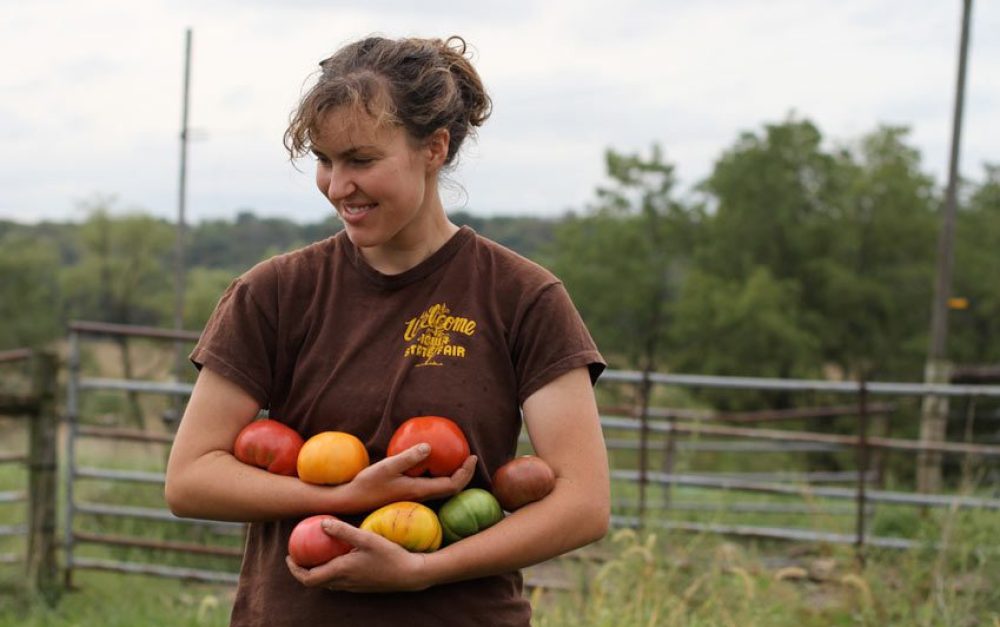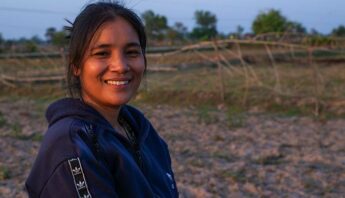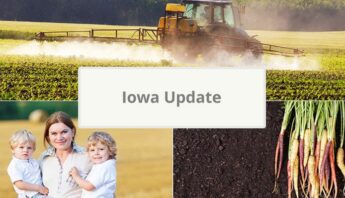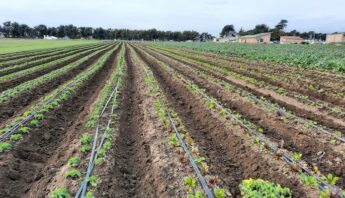Let’s take a moment to honor the women who run about a third of our country’s farms. They’re also often leading the way in developing more resilient practices, farming on smaller pieces of land, incorporating more crop diversity and growing food for their communities.
I had the privilege of speaking with four such farmers who exemplify the strength of women-led agriculture across the U.S.
In honor of Women’s History Month, we’re elevating voices of women farmers in the U.S. and beyond. This blog was originally published on October 12, 2016.
Let’s take a moment to honor the women who run about a third of our country’s farms. They’re also often leading the way in developing more resilient practices, farming on smaller pieces of land, incorporating more crop diversity and growing food for their communities.
I had the privilege of speaking with four such farmers who exemplify the strength of women-led agriculture across the U.S.
A “different way of living”
 Elizabeth Henderson retired from her position as a professor at Boston University at the age of 36 to begin farming, and explains:
Elizabeth Henderson retired from her position as a professor at Boston University at the age of 36 to begin farming, and explains:
I really wanted to find a different way of living. So getting my hands dirty and doing some physical work was very appealing to me.”
She is a founder and previous co-manager of Peacework Farm, a 15-acre certified organic operation that supplies 70 different crops to its community supported agriculture (CSA) members in the Newark area. After more than 30 years in organic agriculture, Henderson still lives across the street from Peacework Farm. She is assisting her partners in the search for the right young farmers to carry on the legacy of the farm, which renews its 25-year rolling lease with the Genesee Land Trust each year.
One of the most influential champions of the CSA model in the U.S., Henderson has also been a lead author on several books, serves on the board of the Northeast Organic Farming Association (NOFA) of New York as the co-chair of the policy committee, and represents the NOFA Interstate Council on the board of the Agricultural Justice Project. She is also the recipient of numerous social justice awards.
Henderson offers this advice:
People of my generation spent hours and hours creating programs to support family-scale farms – and these programs will only continue if the next generation takes up that work. And if everyone is on one committee, writes one article every now and then, participates in some way in policy making or activism, then we can continue to move forward.”
Caring for the land
 The first summer after Sally Gran launched her own small, diversified, certified organic vegetable business — TableTop Farm — her primary concern was not about abnormal weather, crop failure or even money. It was about pesticide use. She had watched a pilot, who surely misread his map, release a cascade of fungicide as he flew over her fields.
The first summer after Sally Gran launched her own small, diversified, certified organic vegetable business — TableTop Farm — her primary concern was not about abnormal weather, crop failure or even money. It was about pesticide use. She had watched a pilot, who surely misread his map, release a cascade of fungicide as he flew over her fields.
Over the course of the next five growing seasons, Gran was never affected again so directly. But each year, she watched the health of her plants decline after the soybean and corn fields that surround her land in central Iowa got their regular doses of herbicides.
With a degree in both anthropology and sociology, Gran gleaned her farming expertise by working on other farms. Her veggies are in high demand in nearby Des Moines and she doesn’t anticipate leaving the Midwest. First as the young and beginning farmer representative and now as a member of the Iowa Farmers Union Board of Directors, Gran works to give a voice to the diversified, organic farmers in Iowa.
Most recently, she has taken a hiatus from her business due to a series of rough weather years and a plea from her husband to stop working such long hours. She says:
I was not satisfied with the way we were treating the soil and I also felt like I needed to investigate different farming practices that would be more resilient in the face of climate change.”
Gran is currently looking for new land to start a livestock and agroforestry business, including fruit and nut trees — a model she hopes will help her better care for the land.
Rooted in community
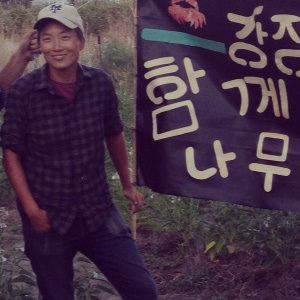 Kristyn Leach leases a 1-acre plot at Sunol Ag Park, an 18-acre swath of prime agricultural land less than 40 minutes outside of Oakland, CA. Facilitated by the non-profit group Sustainable Agriculture Education (SAGE), the land is currently home to seven additional farm businesses with year-to-year license agreements.
Kristyn Leach leases a 1-acre plot at Sunol Ag Park, an 18-acre swath of prime agricultural land less than 40 minutes outside of Oakland, CA. Facilitated by the non-profit group Sustainable Agriculture Education (SAGE), the land is currently home to seven additional farm businesses with year-to-year license agreements.
Adopted from Korea and raised in New York City, Leach now grows heritage Korean crops almost exclusively for the restaurant Namu Gaji in San Francisco. In turn, the restaurant pays her salary. Without the burden of marketing her produce piecemeal, this partnership allows her to prioritize the health of the farm more holistically. Her farm is non-mechanized, and she practices no-till techniques and grows her own seed.
Leach explains that one of her biggest barriers remains land access and long-term land tenure.
If this [barrier] is related to being a woman, it’s also integrated with being not white. I just started realizing how valuable having developed Korean community here has been for the farm. That holds more gravity to me now, and dictates the radius of where I’m able to move to find land.”
While she plans to keep her farm a for-profit business, Leach hopes to also make it an education and organizing conduit. She donates food to local food justices groups and collaborates with a Korean domestic violence recovery group.
On her own terms
 Reflecting on her farming career, Jill Elmers says:
Reflecting on her farming career, Jill Elmers says:
I spent the first half of my life being an engineer in a man’s career, and I faced these challenges there as well. You always have to prove yourself — it’s not assumed that you know anything.”
While Elmers first took a summer job working on an organic farm to cross it off her bucket list, she was soon hooked and left her engineering career to farm full-time. She now owns Moon on the Meadow Farm, selling fruits and vegetables to the farmers market, restaurants and a CSA from her 3.5 acres.
In collaboration with a business partner, she grows heirloom Turkey Red winter wheat (which is the original Kansas wheat, brought over by the Mennonites in the 1800s) on their jointly owned 35-acre plot. Both operations are certified organic.
Elmers, like Sally Gran in Iowa, worries about pesticide drift from her conventional corn and soybean neighbors — describing that there is an “us and them” dynamic between growers with different methods. But Elmers would never consider leaving the area because, in her words, “It’s absolutely fantastic land!”
She describes the invaluable support from her fellow farmers and a responsibility she feels to help others succeed. The chair of the Douglas County Food Policy Council, Elmers is also involved in creating a farmer-owned Food Hub to support diversified farmers in her area.
“It’s a fantastic way to make a living,” she says. “The way we farm is a way of life. We really believe in what we are doing and we live it every day, because it’s part of who we are. We try to encourage that and spread that all the time.”
Deep appreciation
These four women, and thousands more, deserve recognition on National Farmers’ Day. Along with other careful stewards of the land that grows our food, they are an inspiration.
Many thanks to you all.



